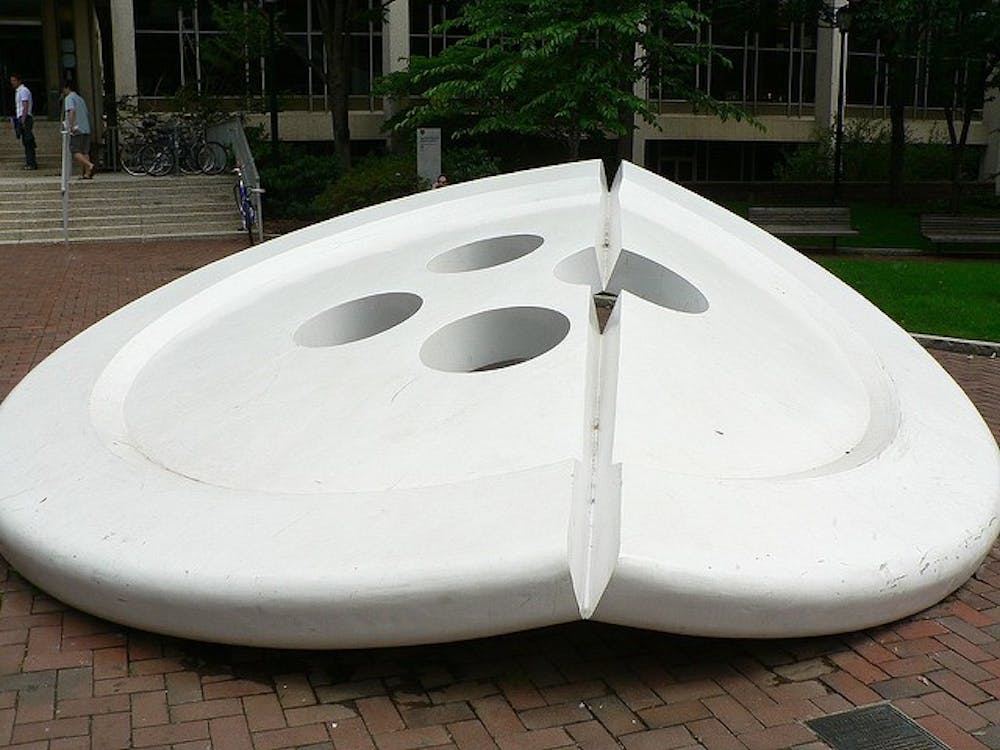Penn Increases Tuition to Fund Purchase of More Weird Sculptures

February 22, 2017 at 5:02 pm
Last week the University Board of Trustees signed off on another 3.9 percent tuition hike for undergraduates, raising Penn’s cost of attendance by $2,610 to $68,610. Although inflation rates that high are usually only good news when you’re talking about grades, this time around Penn is promising that these increases are in the best interest of its students.
One might expect Penn to use this added revenue to invest in high rise elevator renovations or enigmatic task forces, but today the administration has made it clear that the goal of these price increases is to fund the creation of even more bizarre sculptures on campus.
The University recognizes that weird sculptures are what’s bringing tourism dollars and attracting prospective students to Penn. “With the popularity of installations like the LOVE sculpture, the Button, and Covenant, we decided that we need to invest even more money in weird art. We received an overwhelmingly positive reaction from the four students we polled about this decision."
Penn is choosing its lane wisely, leveraging the fact that more and more people are making college decisions based entirely on whether or not the campus is “gram-worthy.” The University is apparently still debating the addition of three more LOVE sculptures to campus, sprinkled around for perfect photo opportunities.
When students asked about whether it really is a good idea to spend $200 million on bizarre sculptures of abstract concepts, clothing fasteners and feminine hygiene products, a University spokesperson responded, “Joe Biden.” There were no further questions. Crisis averted!
The art pieces soon to be added to campus include: an installation composed of two brass spheres next to a stainless steel rod, a “challenging metaphysical art installation meant to invoke notions of duality and balance”; a giant, immovable cube in the middle of Locust walk; and a number of assorted life-size bronze statues to place on benches across campus, effectively reducing the capacity of all benches by 50% and inviting public urination.